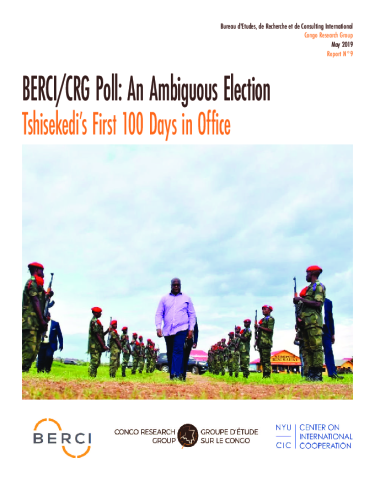More and more despair has been gnawing at the hearts of Congolese men and women. Recent political events have not fulfilled our people's dreams.
The Democratic Republic of the Congo held national presidential and legislative elections on December 30th 2018. The elections, which had been delayed by two years, were mired in controversy. The national electoral commission declared opposition leader Felix Tshisekedi the winner of the presidential poll. However, a leak from the same commission, whose results were extremely similar to those released by the Catholic Church’s observation mission, showed that Martin Fayulu, another opposition leader, clearly won the elections.
Despite this controversy, the post-electoral scene has been relatively stable. Tshisekedi was inaugurated on January 24th and has spent his first months traveling abroad––meeting with at least 17 heads of state since January––and in the country. Meanwhile, Martin Fayulu has launched a campaign to contest the election results, holding rallies in several towns across the country.
How do Congolese feel about these events? In order to assess public opinion at this critical juncture, the Congo Research Group (CRG) at New York University (NYU) and the Bureau d’Études, de Recherches, et Consulting International (BERCI) conducted two nationally representative telephone polls in March (1,212 people) and May 2019 (1,294 people). The poll supports the following conclusions:
Congolese have mixed feelings about the elections:
- Nearly half think the elections were rigged, but still accept the results;
- A majority of respondents (56%) do not trust the electoral commission, yet 62% are satisfied with the way democracy works in the country.
- 67% have a positive opinion of Félix Tshisekedi’s performance as president, a significantly higher approval than that for last two Congolese presidents after their first 100 days in office, Joseph Kabila (44%) in March 2001 and Laurent-Désiré Kabila (51%) in August 1997.
- For the first time in many years, respondents feel optimistic about the direction the country is headed (61%) in May 2019, an increase of 34% over November 2017.
- A clear majority Congolese (58%) disapproves of the current alliance between Tshisekedi’s coalition and that of the former President Joseph Kabila.
- Unlike in December 2018, Martin Fayulu is no longer the most popular Congolese politician, but in May 48% were in favor of him leading the opposition, twice as many as for other opposition leaders Moise Katumbi or Jean-Pierre Bemba.
- The top 3 priorities for the newly elected president are related to improving living conditions and other economic issues”; “peace and security reform,” including including launching legal proceeding against Kabila and his ministers”; and “the repair or construction of infrastructure.”
- Although most respondents (57%) get their news from local media, international media are considered as being more neutral for the majority of the respondents (70% vs 53%).
Download the entire polling report BERCI/CRG Poll: An Ambiguous Election.pdf


